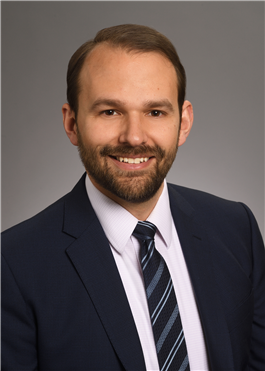
Glucagon-like peptide 1 receptor agonists, more commonly known as GLP-1 medications, have dominated headlines for their success in managing blood sugar levels and drastically reducing weight. Between new clinical trial results and a boom in celebrity usage, the popularity of the medications increased drastically over the past two years.
GLP-1 medications work by changing the hormonal signals in the body to induce a lower appetite and feel full on less food. They also have been found more recently to affect pathways in the brain. Originally approved for diabetes treatment in 2005, two variations of the drug, Saxenda (liraglutide) and Wegovy (semaglutide) have been approved by the Food and Drug Administration (FDA) to regulate hunger, which can lead to eating fewer calories and aid in weight loss. In just the past three years, Zepbound (tirzepatide) was also approved to aid in weight loss efforts for obese or overweight adults, which stimulates receptors for both glucose-dependent insulintropic polypeptide (GIP) and GLP-1.
As a bariatric surgeon who is certified in obesity medicine, I have seen an increase in patients asking about these medications, believing these medications will give them the weight loss results they’re looking for without undergoing surgery.
These medications can be helpful in the bariatric process but do not always work in place of a procedure. Patients who are using the medications before surgery often have a BMI of 50 or greater and need to start weight loss immediately to reduce other health risks during surgery. We also use the medications for patients who have already had surgery with us or another surgical practice and need additional maintenance.
Though these medications have great potential for improving patient lives, there are several factors overlooked by patients when considering this type of drug.
Availability of medication
With its growing popularity, the pharmaceutical industry is struggling to keep up with demand. In some cases, patients can wait significant periods to receive the medication. The supply of medications has improved but there are still times when different dosages must be used or gaps in medication occur even after starting.
Insurance coverage
Currently, most if not all insurance companies cover the medications for those treating diabetes and recently some have added cardiovascular disease like blocked arteries in the heart, brain or legs. However, many insurance companies have not approved these medications for weight loss purposes. There are also cases of companies dropping coverage for weight loss medications in the Atlanta area over the last year because of the increase in employer insurance costs. These restrictions and changes to coverage leave certain patients to pay out-of-pocket, and GLP-1s can be very expensive.
Length of treatment
All available research shows significant weight regain after stopping GLP-1 medication for the vast majority of patients, making this medication a long-term or indefinite treatment. This means regular follow-up appointments with your doctor for refills are needed. Also, the amount of medication a patient takes to achieve results may increase as the body adapts, with no long-term research giving a clear answer to what will happen.
Risk of treatment
Just like all medications, GLP-1s do not come without side effects and much is unknown about the long-term effects of the medication. Potential negative effects currently under investigation include permanent gastroparesis or stomach paralysis, suicidal thoughts and an increased risk of thyroid cancer. Patients will likely be more susceptible to negative effects as treatment continues.
Nutrition and exercise
Weight loss without exercise and proper nutrition may cause sarcopenic obesity, which is a disproportionate amount of high body fat percentage and loss of skeletal muscle mass and function. This can cause other metabolic problems and can be dangerous when it comes to a patient’s overall health. We focus on improving health and tools such as body composition scales, and nutritional counseling is essential to making weight loss healthy and sustainable.
Compounded medications
As demand grows, so will the number of compounded medications or off-brand medications created by local pharmacists for a cheaper cost unless the legal landscape changes. Performed by a third-party manufacturer, this process is not FDA-approved. Patients should be wary when considering these medications, as all ingredients, the actual drug in the vitals, and doses within the drug may not be known. Infection, allergic reaction or negative interactions with existing medications can also occur, making it a considerable risk. There are also lawsuits brought by Novo Nordisk and Eli Lilly against compounding pharmacies and prescribers, which will likely change how this practice is used over time.
Though there is a current shift to medications, this will not be the end of bariatrics. Using medications like GLP-1s indefinitely can be tiresome, expensive and frustrating for patients who want to gain independence from their weight. Surgery is the only option that allows for decreased reliance on a physician to maintain robust weight loss over regular visits to receive a weight loss medication. Research supports many benefits to bariatric surgery, including a decrease in weight-related cancer risks, the potential to cure a patient’s acid reflux in certain cases, and an 85% likelihood of patients losing at least half their excess body weight and maintaining that weight loss after five years.
It’ll be several years before we know more about these drugs and their long-term effects, and more drugs will undoubtedly emerge with many of them in various stages of development. But a coexistence between medications and surgery is just beginning because they have different uses, strengths and downsides. It is more about matching a patient’s wishes, health and available options instead of just one option to address all patients.
Learn more about weight management solutions available at Northside Hospital.

